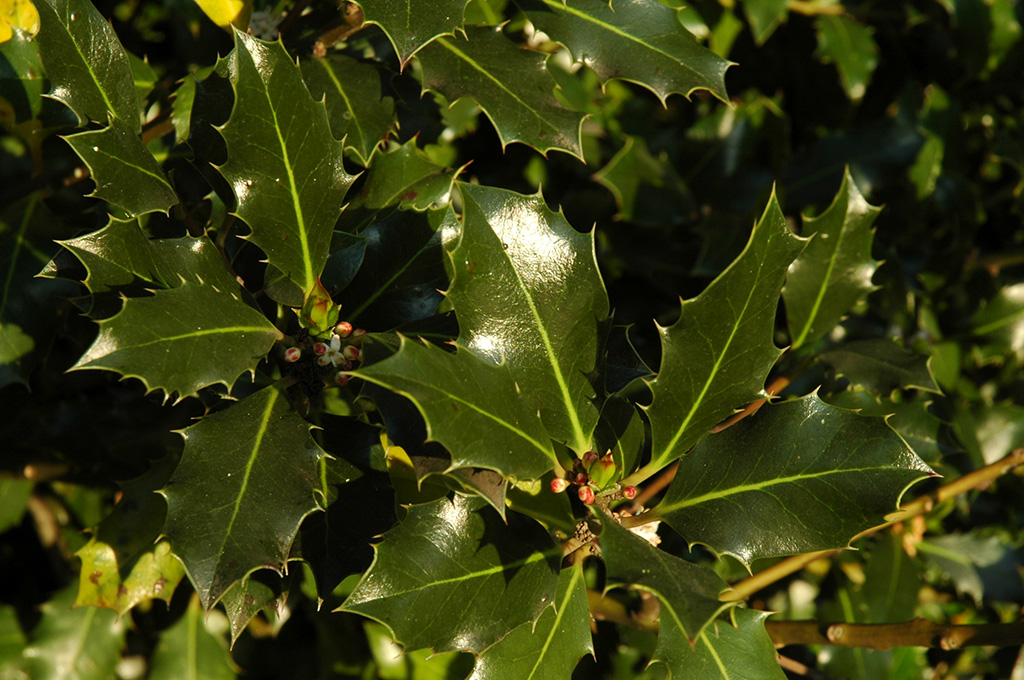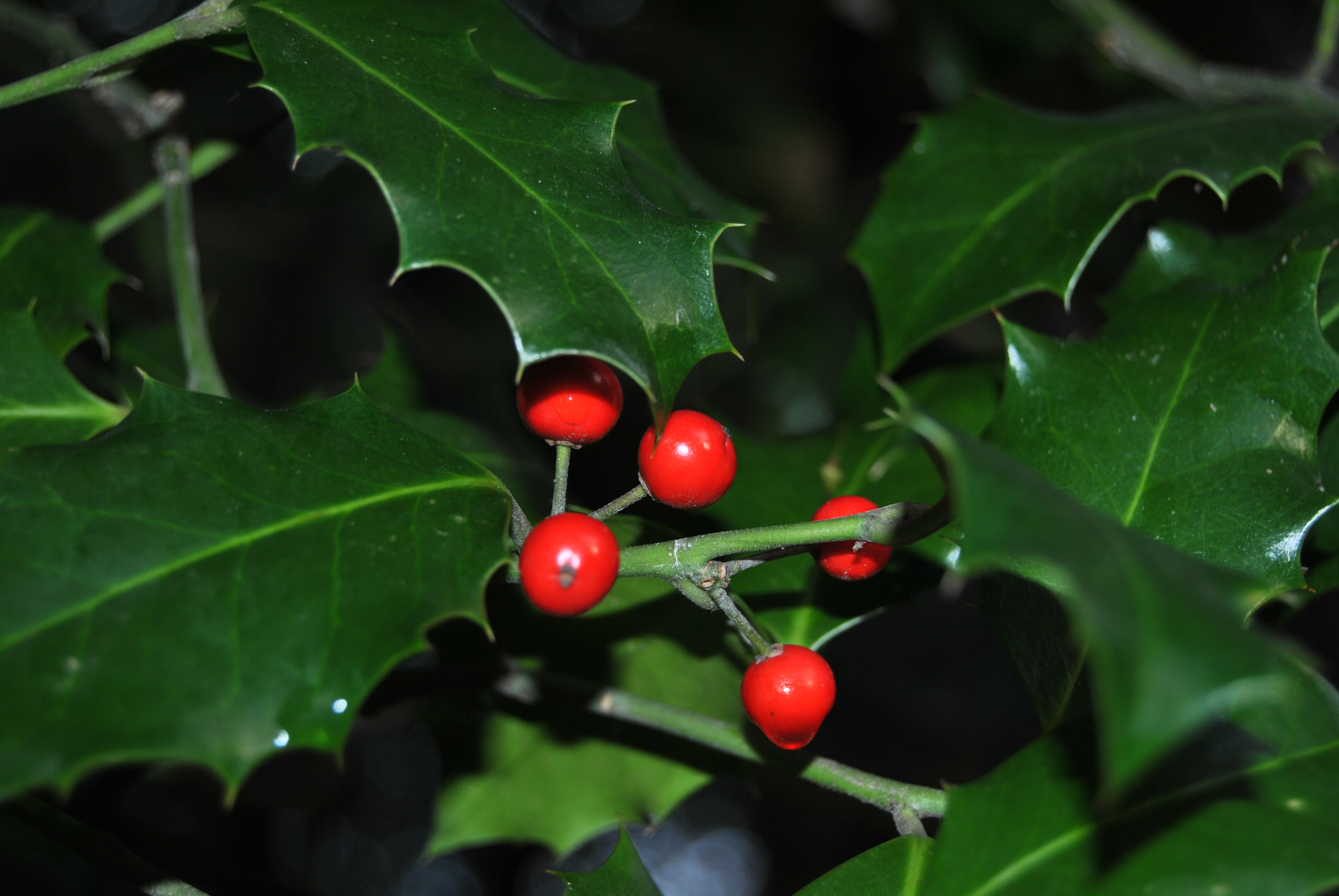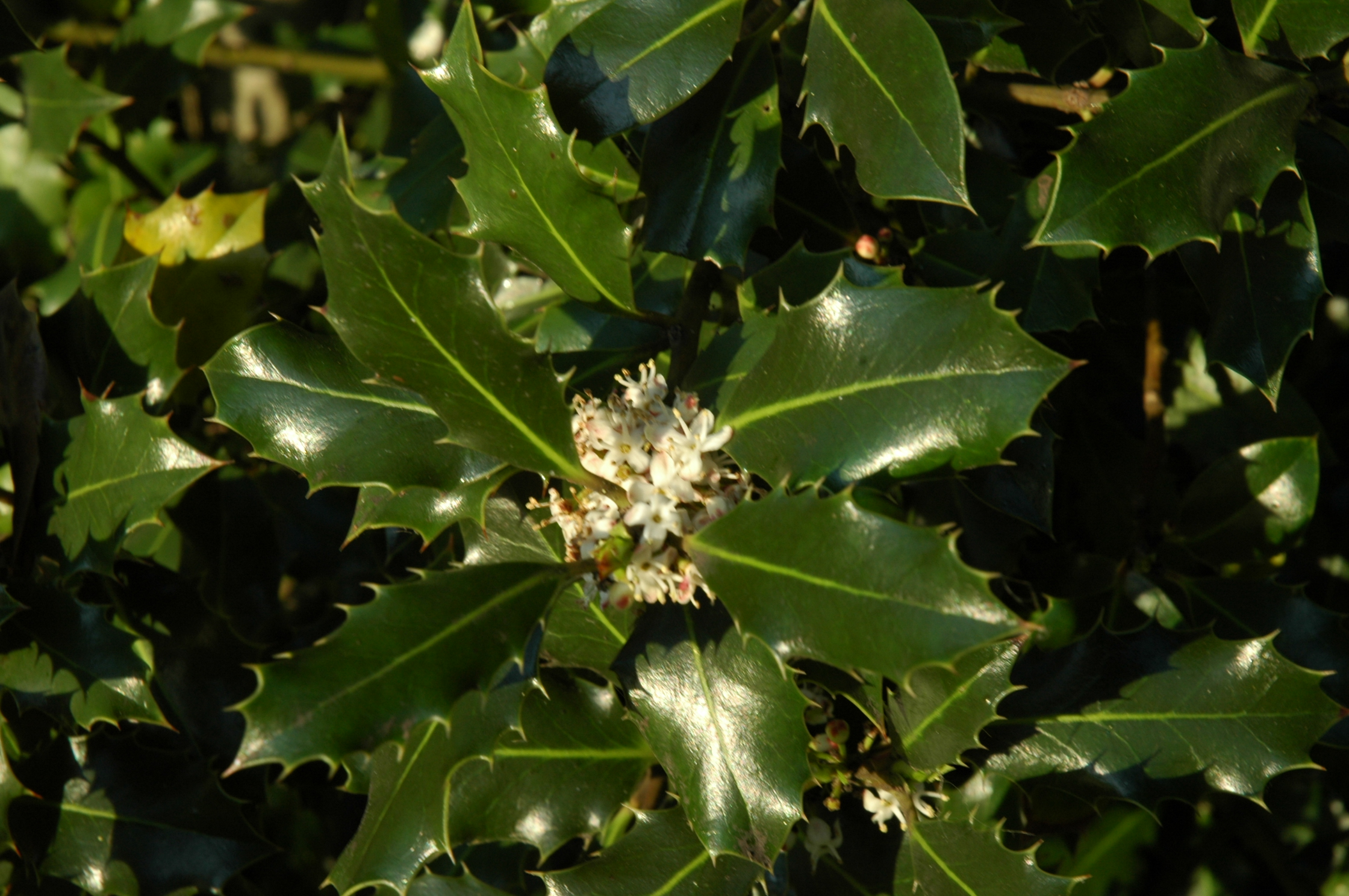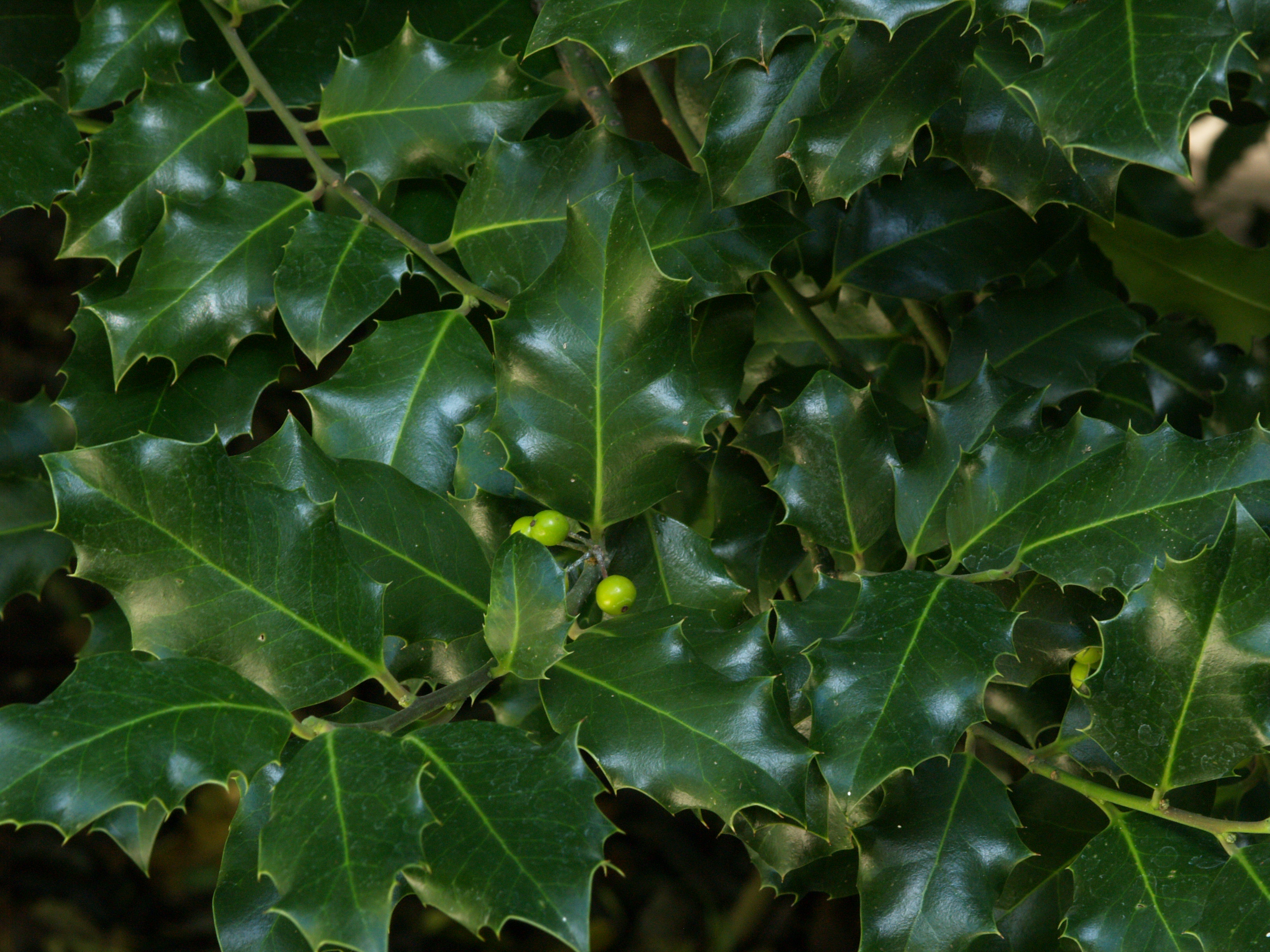
Holly
Ilex aquifolium
Family and description
From the Ilex genus, Aquifoliacea family, the Holly is a shrub with persistent leaves and slow growth, which can reach a height of up to 6 m as an adult and can live more than 100 years.
The leaves are dark green, or have a white/cream border; they are oval or lanceolate in shape and have a wavy and spiny edge, sometimes smooth in older individuals or branches.
Flowering occurs from April to June and the flowers are small and white. The fruits are red drupes that ripen in late summer and remain throughout winter.
Being a dioecious species (i.e. having male reproductive organs in one individual and female in another), the fruits, which are toxic, appear only in female specimens.
Origin and habitat
It grows spontaneously in mainland Portugal. It is found in deciduous forests (oak groves) and thickets, in mountainous regions up to 1500 m in height, with heavy or moderate rainfall. It often occupies shady and humid slopes with slightly acidic, light soils, rich in organic matter.
On the Madeira islands there is an endemic species of holly which only exists on these islands. It is very different to the Ilex aquifolium and is known as the Ilex canariensis. There is also a species of Holly in the Azores that is exclusive to these islands – the Ilex perado subsp. Azorica.
Uses and curiosities
Holly is a species traditionally associated with the Christmas season, with its bright red fruits that contrast with the green of its leaves. This tradition generates huge demand for the plant at this time of year. Due to the harvesting of the branches with the fruits, the reproduction of the species has been seriously threatened throughout Portugal, which has led to the risk of extinction of Holly in its spontaneous state. For this reason, its harvest, transport, and commercialization in mainland Portugal is prohibited.



